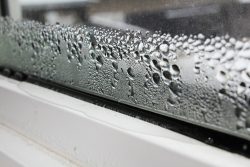Understanding the Negative Effects of Humidity on a Pool
August 29, 2023 9:42 pm Leave your thoughts
1. Structural Damage:
Humidity places a significant burden on the structure of your pool. Excessive moisture in the surrounding air can lead to condensation on different pool components, such as walls, ceilings, and floors. Over time, this moisture can seep into the pool’s structure, causing cracks, corrosion, and other forms of structural damage. Regular inspections and maintenance should be conducted to prevent such issues and prolong the lifespan of your pool.
2. Water Quality Issues:
High humidity levels in the air can also affect the quality of your pool water. The excess moisture creates a breeding ground for bacteria, algae, and other microorganisms, leading to cloudy water and an increased risk of infections for swimmers. Moreover, humidity can also accelerate the evaporation rate of the pool water, causing imbalances in chemical levels and leading to a higher demand for treatment chemicals. It is essential to monitor and maintain proper water chemistry regularly to prevent these issues.
3. Mold and Mildew Growth:
The constant presence of humidity in the pool environment increases the likelihood of mold and mildew growth. These fungi thrive in warm, damp conditions and can quickly spread on any surface near the pool, including walls, tiles, and even pool accessories. Mold and mildew not only create an unsightly appearance but also pose potential health risks to swimmers. Regular cleaning and dehumidification measures should be implemented to inhibit their growth.
4. Damage to Electrical Systems:
High humidity levels can also adversely affect the electrical systems associated with your pool. The excess moisture in the air poses a risk of corrosion and short circuits in electrical components, such as pumps, heaters, and lighting fixtures. In extreme cases, this can result in electrical failures or even electrical fires. Regular inspections and keeping electrical components dry are crucial to preventing such incidents and ensuring the safety of your pool area.
5. Decreased Energy Efficiency:
Humidity levels can significantly impact the energy efficiency of your pool systems. The higher the humidity, the more energy your pool dehumidification system has to expend to maintain optimal conditions. This places a strain on your pool’s energy consumption and can lead to increased utility bills. Upgrading to energy-efficient equipment and regularly maintaining your dehumidification system can help alleviate this issue and reduce energy costs in the long run.
Conclusion:
While humidity is an inevitable part of the pool environment, understanding and managing its negative effects is vital for the longevity and enjoyment of your pool. By being mindful of the structural damage, water quality issues, mold growth, electrical system risks, and decreased energy efficiency associated with humidity, you can take proactive steps to mitigate these problems. Regular inspections, maintenance, and implementing appropriate dehumidification measures will go a long way in ensuring your pool remains a safe and enjoyable place for you and your family.
Got Questions? Let Us Help!
Categorised in: Pool Maintenance
This post was written by admin
